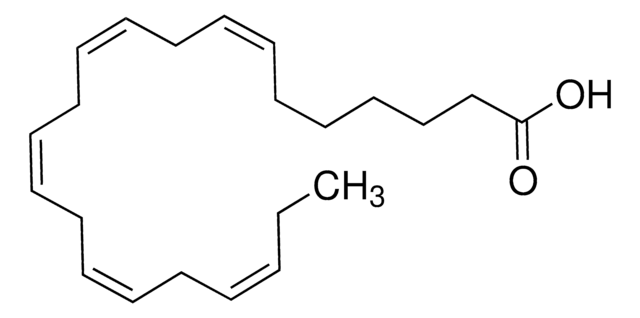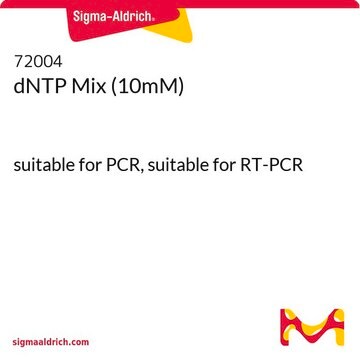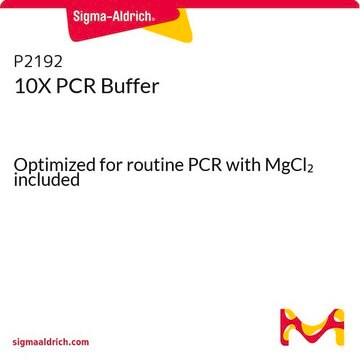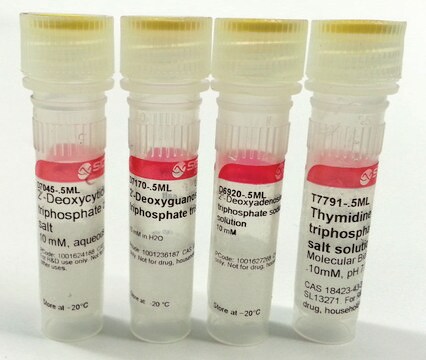D4545
Taq DNA Polymerase from Thermus aquaticus
with 10× PCR reaction buffer without MgCl2
Synonym(s):
Taq polymerase, Taq polymerase enzyme
About This Item
Recommended Products
biological source
enzyme from bacterial (Thermus Aquaticus)
recombinant
expressed in E. coli
form
liquid
usage
sufficient for 1500 reactions
sufficient for 250 reactions
sufficient for 50 reactions
sufficient for 5000 reactions
feature
dNTPs included: no
hotstart: no
concentration
5 units/μL
technique(s)
PCR: suitable
color
colorless
input
purified DNA
suitability
suitable for PCR and automated sequencing reactions
application(s)
agriculture
shipped in
wet ice
storage temp.
−20°C
Looking for similar products? Visit Product Comparison Guide
General description
Application
- in the process of DNA extraction (during gene amplification and sequencing)
- in genotyping
- in polymerase chain reaction (PCR) to study the constitutive production of epithelial neutrophil activating peptide 78 (ENA-78) and interleukin-8 (IL-8)
- for amplification of RNA from primary endothelial cells by conventional PCR
Biochem/physiol Actions
Features and Benefits
- MgCl2 provided in a separate tube to allow MgCl2 optimization
- Can withstand repeated heating to 95 °C without significant loss of activity
Packaging
Other Notes
Unit Definition
Legal Information
Related product
hcodes
pcodes
Hazard Classifications
Aquatic Chronic 3
Storage Class
12 - Non Combustible Liquids
wgk_germany
WGK 2
flash_point_f
Not applicable
flash_point_c
Not applicable
Certificates of Analysis (COA)
Search for Certificates of Analysis (COA) by entering the products Lot/Batch Number. Lot and Batch Numbers can be found on a product’s label following the words ‘Lot’ or ‘Batch’.
Already Own This Product?
Find documentation for the products that you have recently purchased in the Document Library.
Customers Also Viewed
Articles
Explore PCR's history, from discovery to Nobel Prize. Discover real-time PCR (qPCR) and digital PCR developments.
The polymerase chain reaction is one of the most widely used techniques in molecular biology. The PCR process consists of three main steps, Denaturation, Annealing & Extension
Protocols
Hot start dNTP protocol enhances specificity in PCR by blocking DNA polymerase nucleotide incorporation during PCR.
Hot Start dNTPs block DNA polymerase until heat activation, enhancing PCR specificity.
Learn standard PCR protocol steps and review reagent lists or cycling parameters. This method for routine PCR amplification of DNA uses standard Taq DNA polymerase.
Our team of scientists has experience in all areas of research including Life Science, Material Science, Chemical Synthesis, Chromatography, Analytical and many others.
Contact Technical Service














